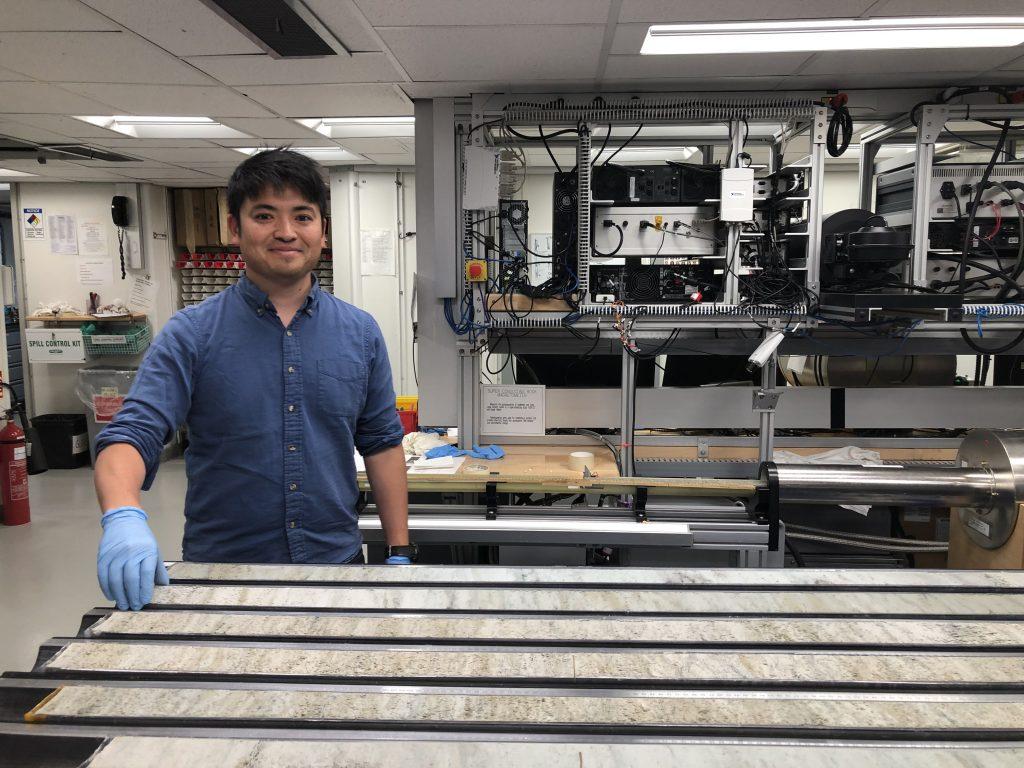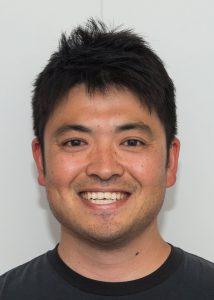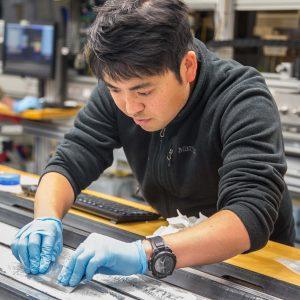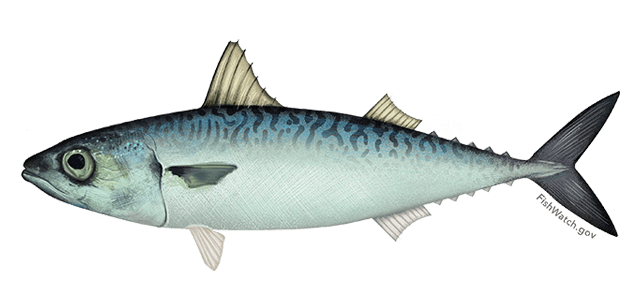
Career Spotlight: Sedimentologist Shinya Iwasaki

Shinya Iwasaki Interview
Please describe your job duties while on the JR. What will you be doing on a daily basis?
-
-
-
-
-
-
-
-
- My job is to help with the core description. I examine and describe the color, texture, grain size, sedimentary structure, and I use microscope to see microscopic fossils.
-
-
-
-
-
-
-
Describe one instrument or tool that is essential for you to do your job? Or a piece of equipment on the JR that is useful and why – what does it do?
-
-
-
-
-
-
-
-
- Brush. I use the brush to pick up tiny fossil.
-
-
-
-
-
-
-
Why is your work (or research) important? What question are you trying to answer or how does your work/research help assist/advance scientific knowledge?
-
-
-
-
-
-
-
-
- I am trying to answer how CO2concentration changes between times of glacial and interglacial. Where does the CO2 came from? The Southern Ocean is considered the principal candidate of CO2 storage. I want to know if this is really the case.
-
-
-
-
-
-
-
Why the ocean? What made you choose a career at sea or career that involves the ocean?
- This is difficult question. A picture of the ocean in a magazine like “National Geographic” was probably the start of my interest in the ocean.

What are you most excited about for this expedition and/or being on the JR?
- The Southern Ocean is a key area for understanding the carbon cycle connection between ocean and atmosphere. So, we have the opportunity to help answer a big scientific issue.
What are three things you think are needed for a successful expedition at sea? And Why!
- Wallet, iPhone, Passport. I have no idea. I always check these three things at the entrance of my house when I depart. Can’t go anywhere without them!
If you could answer one question about our Earth – what would it be and why?
- I want to know about the start of life. We cannot create life, but nature did it. It is a miracle.
What is your favorite sea creature and why?
- Mackerel. It’s so delicious.

When did you know you wanted to pursue a career in science or an ocean science career?
- I knew the 1st year of my Ph.D.
What do you personally hope to gain or experience while on EXP383?
- I want to see a big whale while on the JR.
What message do you have for anyone considering a career at sea or a career involving the ocean sciences?
- I think ocean science is a characteristic science that requires working as a team. I cannot get any scientific results without ship crew, drilling staff, lab technicians and all other scientist of other specialties. We have to cooperate with each other, and we also have to live on a ship together for one or two months. I think life on the ship is very important part of ocean science, and it is very important to enjoy your ship life. Therefore, all of your personality traits and interests, for example, your hobby, favorite music, sports etc., should be very useful for communicating with other people and make your life on ship fruitful. Of course, scientific knowledge and inspiration are important too. But I want to say that everything what you like other than science is also important for you to do a good job.
What do you do back home when not on the JR?
- I take care of my child.
Do you get seasick? If yes or sometimes, please also select the other tab and describe how you cope with it.
- Sometimes: When I feel seasick a little, I don’t bear. I go to toilet or ship edge soon and throw up intentionally. The important point is “don’t bear, throw up soon!”. When I throw up, I feel much better. If I feel seasick again, “don’t bear, throw up soon!”.
The need for space comes in many forms. Which type of space, in general, is the most important to you?
- ___Personal Space
- ___Creative Space
- _X_Outdoor Space
- ___Emotional Space
- ___Physical Space
- ___Spiritual or Meditative
- ___Outer Space
- ___Community Space
- ___Quite Space
- ___Productive/Work Space
- ___Digital/Virtual Space
- ___Public Space
- ___Inner Space
- ___Other:
Why that type of space? What makes it important to you and will it be available while on the JR?
- Outdoor space is very good for refreshing my brain.